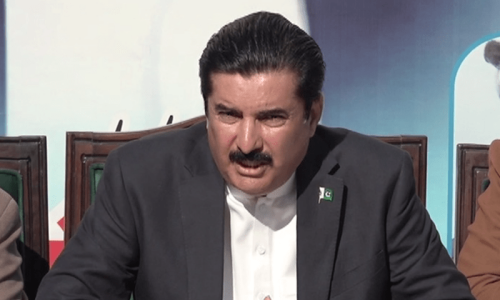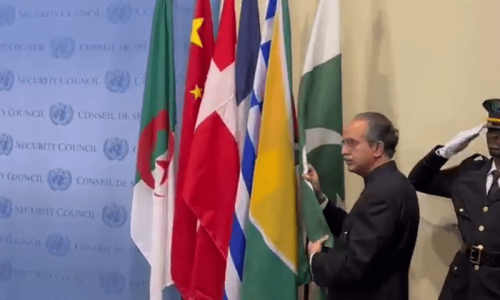IT is chilling to witness how Pakistan — a nation that embraced the freedoms of modern democracy, and the tech that came with it — has descended into echoing the darkest chapters of authoritarian history. The escalating digital clampdown, including the planned blocking of non-commercial VPNs by Nov 30 and the deployment of a China-inspired ‘national firewall’, signals this disturbing descent. Of late, WhatsApp outages preventing messages, images, and videos from being sent have added to the chaos, affecting millions of users. X, Instagram and TikTok were affected long before. The government claims these measures will combat illegal content, obscenity, and ‘digital terrorism’, but its underlying motivations appear far more politically charged. The timing of these moves usually coincides with heightened political tensions, particularly protests by supporters of former prime minister Imran Khan. The ‘firewall’ — or the Web Management System — reportedly equipped with intrusive Deep Packet Inspection technology, enables granular monitoring of internet activity and selective blocking of content. While officials frame this as a tool to safeguard national security, critics argue it is aimed at silencing dissent and controlling narratives. In a political climate where mainstream media is far from free, social media has become a critical outlet for public expression.
The ramifications are profound. Pakistan’s thriving IT sector, growing at 30pc annually, is under severe threat. Industry leaders warn that the VPN ban risks alienating Fortune 500 clients, causing massive financial and reputational losses, and forcing companies to relocate. Freelancers and small business owners, who rely on uninterrupted connectivity for global contracts, are already struggling due to frequent internet throttling. This is no way to achieve the ambitious target of raising IT exports to $25bn. Moreover, the deployment of the firewall, lacking transparency and legal safeguards, undermines user privacy and has already slowed internet speeds due to its intrusive ‘in-line’ monitoring. These measures mimic the worst elements of dictatorships, where controlling dissent takes precedence over economic and civil liberties. Instead of emulating restrictive models, the government must focus on addressing public grievances and restoring democratic freedoms. Stakeholder engagement, transparent regulations, and targeted approaches to national security concerns are essential. Suppressing dissent through draconian measures will only deepen public distrust, isolate Pakistan in the global digital economy, and fuel further unrest. Freedom and progress, not fear and control, must guide our digital future.
Published in Dawn, November 27th, 2024












































Dear visitor, the comments section is undergoing an overhaul and will return soon.